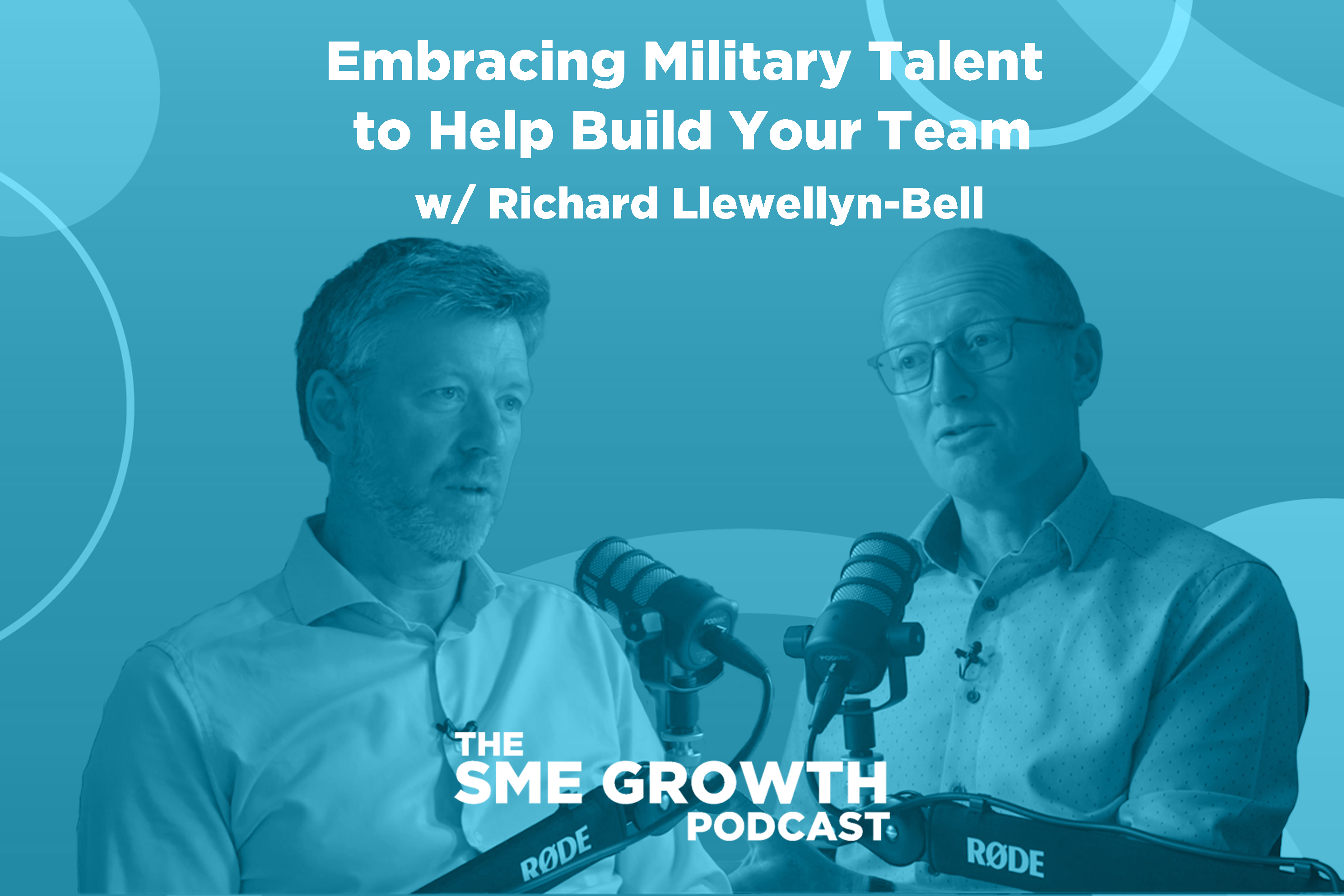Episode 30: Embracing Military Talent to Help Build your Team w/Richard Llewellyn-Bell
In this episode of The SME Growth Podcast, host Dave Parry is joined by guest Richard Llewellyn-Bell to discuss the current challenge of recruitment...
Wellmeadow supports ambitious companies with business growth enabled by HubSpot.
We've worked with over 100+ businesses at board-level across sectors such as automotive, manufacturing, healthcare, legal, SaaS, and professional services.

%20(A4).png?width=71&height=100&name=portrait%206-box%20model%20diagram%20(1170%20x%207051%20px)%20(A4).png)

-1.png?width=70&height=70&name=Square%20(1)-1.png)
3 min read
Richard Buckle : Updated on January 20, 2023

Having arrived at the point where the four best candidates have made it through the selection process, the final evaluation stage begins.
Welcome to the final blog in the series of extracts from our downloadable e-book "Is it time to recruit well?".
After using online face-to-face interviews to create a short list, the next step is in-person evaluation interviews. The evaluation interviews build on all previous stages of the recruitment process, and are an opportunity for a broader team to meet the candidates - and vice-versa.
Evaluation interviews are the final stage before a hiring decision is made. As such, ensuring that all the criteria that has been identified in the job description and person specification are tested for, is vital.
Where it is practically possible, have two people from the hiring team in each interview. This allows for a good cross-section of people from the organisation to meet each candidate and vice-versa, as well as helping to reduce the possibility of bias.
Consider breaking down the evaluation interviews into four distinct sections (each lasting approximately 45 minutes):
Other tests may be appropriate, determined by the specifics of the role; for example numeracy and literacy tests. Case studies are a great way of assessing behaviours required in the person specification.
Whilst designing the interviews, it’s important to think about how the candidates will be evaluated. A scoring matrix can be a useful tool for helping interviewers to look for the right things. Ideally, a scoring matrix will be tailored to the type of evaluation and linked to the criteria in the specification checklist.
With the best of intentions, engagement with scoring on the day can vary between interviewers. Some interviewers are meticulous in their scoring, others take a more gut-feel approach. Equipping and educating the hiring team to be true to the scoring matrix can be a challenge, but having a framework in place will significantly help the decision-making process.
Organisation of evaluation interviews has two important steps:
All candidates should have been made aware of the date of the evaluation interviews during the initial email communication. Clear communication of the date of the evaluation interviews will help maximise attendance.
It’s also a good idea to send an email to the candidates confirming details of location, interviews, and stages. If an interview involves a presentation that requires preparation, provide a brief. Likewise, if an online psychometric evaluation is being used, send the links out in good time to allow candidates to complete the process.
Think about practicalities too - ensure that rooms are booked, and IT equipment is available and working. and arranged well in advance of the interview sessions.
Provide all the interviewers with packs of information on the role and the candidates.
They typically include:
We’ve noted over the past few years that it is increasingly common for candidates to drop out of the evaluation interviews the night before or even on the day itself.
To manage potential on-the-day drop-outs, try to keep in regular contact with your candidates and be sure that expectations are set and agreed. In our experience, the inclusion of a presentation can be a contributing factor to candidate drop-out.
While that this does not mean you shouldn’t include a presentation element in your recruitment process; it just needs to be appropriate for the role. Make sure as well that the candidates are comfortable with presenting – if you can establish early on that a candidate is not serious about the role, they may drop out earlier and allow for another applicant to take their place.
It is best practice to run a briefing ahead of the candidates arriving to make sure everyone involved in the interviews is aware of their roles. Be sure that the candidates are greeted appropriately, and that they are also met at the end of the process to thank them for their time and confirm next steps.
It’s essential that you:
Getting the basics right before an evaluation interview will ensure they run as smoothly as possible; helping to ensure a positive experience for both candidate and interviewer.
Download our FREE eBook 'Is It Time To Recruit Well?'. It's full of tips and information to maximise your recruitment strategy at every stage.

In this episode of The SME Growth Podcast, host Dave Parry is joined by guest Richard Llewellyn-Bell to discuss the current challenge of recruitment...

Ever used Roblox to interview candidates? My 10-year-old daughter just ran a recruitment process on Bloxburg and it got me thinking!

A carefully considered person specification is a vital component of a successful recruitment process; but it often comes second to the job...